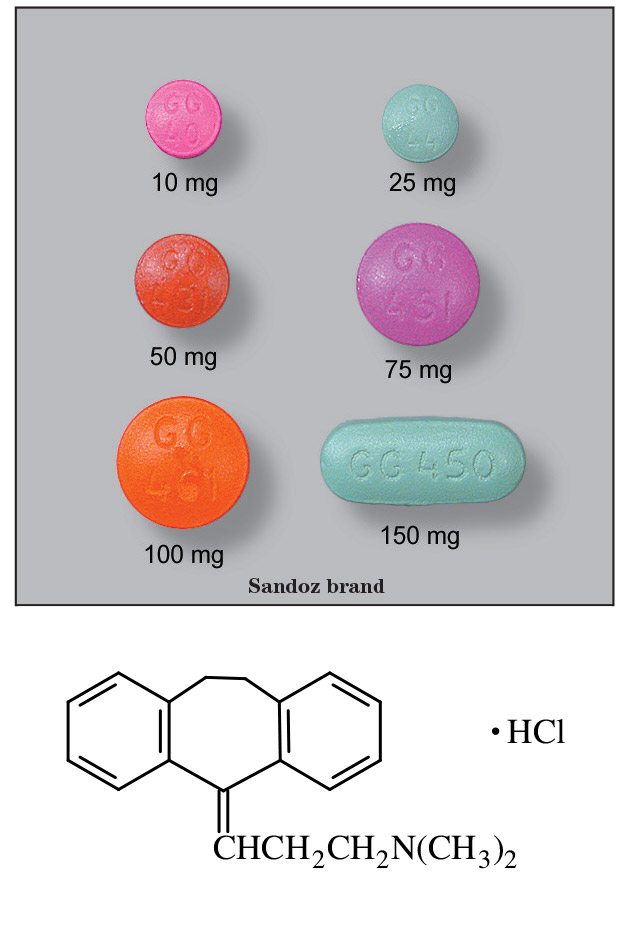
(ār/ə/pip’ rə/zāl
Brand Name: Abilify®
• Generic AvailableCommon Dosage Forms:
- Tablets: 2 mg, 5 mg, 10 mg, 15 mg, 20 mg, and 30 mg
- Tablets, orally-disintegrating: 10 mg and 15 mg (Discmelt)
- Oral Solution: 1 mg/mL
- Injection: 9.75 mg/1.3 mL in a single dose vial
FDA Indications/Dosages:
- For the treatment of schizophrenia: The recommended starting dose is 10 to 15 mg once a day without regard to meals. Doses can be titrated up or down after 2 week intervals to a target range of 10 to 30 mg per day.
- For the treatment of acute manic and mixed episodes associated with bipolar disorder: The recommended starting dose is 15 mg per day.
- Dosage adjustments in patients taking CYP3A4 or CYP2D6 inhibitors: The dose in these patients should be reduced to one-half of the usual dose.
- Dosage adjustments in patients taking CYP3A4 inducers: The dose in these patients should be doubled (to 20 or 30 mg).
Monitor: FBG, Lipid panel, Weight, BP, CBC
Pharmacology/Pharmacokinetics:
The exact mechanism of action of aripiprazole is unknown although it may be due to a combination of partial agonist activity at dopamine D2 and serotonin 5- HT1A receptors and antagonist activity at 5-HT2A receptors. Aripipazole is metabolized by CYP3A4 and CYP2D6 enzymes to dehydro-aripipazole following oral administration. Dehydro-aripipazole has some activity at the D2 receptors and represents 40% of the parent drug exposue in plasma. The half-lives for aripipazole and dehydro-aripipazole are 75 hours and 94 hours respectively. Both are highly bound (99%) to plasma proteins, primarily albumin. Steady-state levels are reached in 14 days.
Drug Interactions:
CYP3A4 inducers (carbamazepine) may decrease plasma levels. CYP3A4 inhibitors (quinidine, fluoxetine, and paroxetine) may increase plasma levels.
Contraindications/Precautions:
CONTRAINDICATED IN PATIENTS WITH DEMENTIA- RELATED PSYCHOSIS. MAY INCREASE RISK OF SUICIDAL THOUGHTS IN CHILDREN AND YOUNG ADULTS. Rare cases of Neuroleptic Malignant Syndrome (NMS) have occurred in patients taking antipsychotic medications including aripiprazole. Symptoms of NMS include hyperpyrexia, muscle rigidity, altered mental status, and autonomic instability (irregular pulse or blood pressure, diaphoresis, and cardiac dysrhythmia). Use with caution in patients with cardiovascular disease, history of seizures, in those at risk for aspiration pneumonia, and in those who will be experiencing conditions which may contribute to elevated core body temperature. Suicide is a possibility in patients taking antipsychotics, therefore dispense the smallest quantity manageable. Rare cases of leukopenia/ neutropenia and agranulocytosis have been reported in patients taking antipsychotic agents.Use with caution in nursing mothers. Pregnancy Category C.
Adverse Effects:
The most common adverse effects include headache, anxiety, insomnia, asthenia, nausea, vomiting, constipation, weight gain, anxiety, lightheadedness, drowsiness, and blurred vision. Tardive dyskinesia is a rare possibility in patients taking this drug.
Patient Consultation:
- Use caution when performing tasks that require mental alertness.
- Avoid alcohol while taking this medication.
- Use appropriate precautions against heat exposure and dehydration.
- Store tablets in a cool, dry place away from sunlight and children.
- Store oral solution in the refrigerator and use within 6 months or opening the bottle.
- Contact a physician if the above side effects are severe or persistent.
- If a dose is missed, skip it and return to normal dosing schedule.